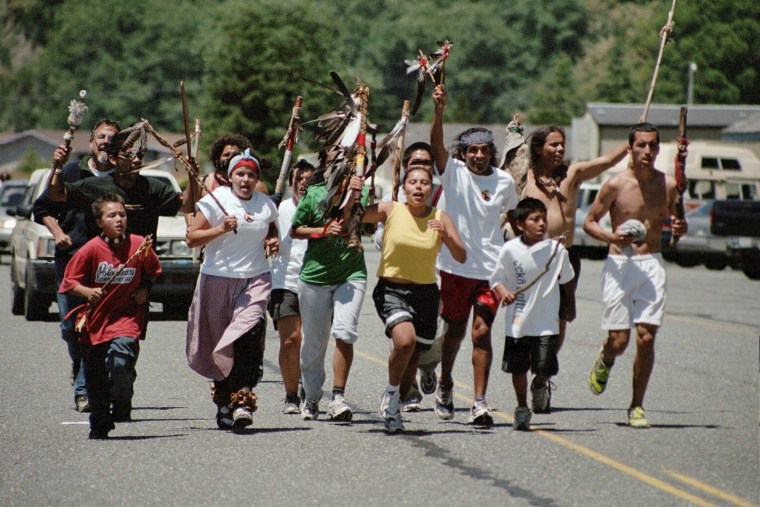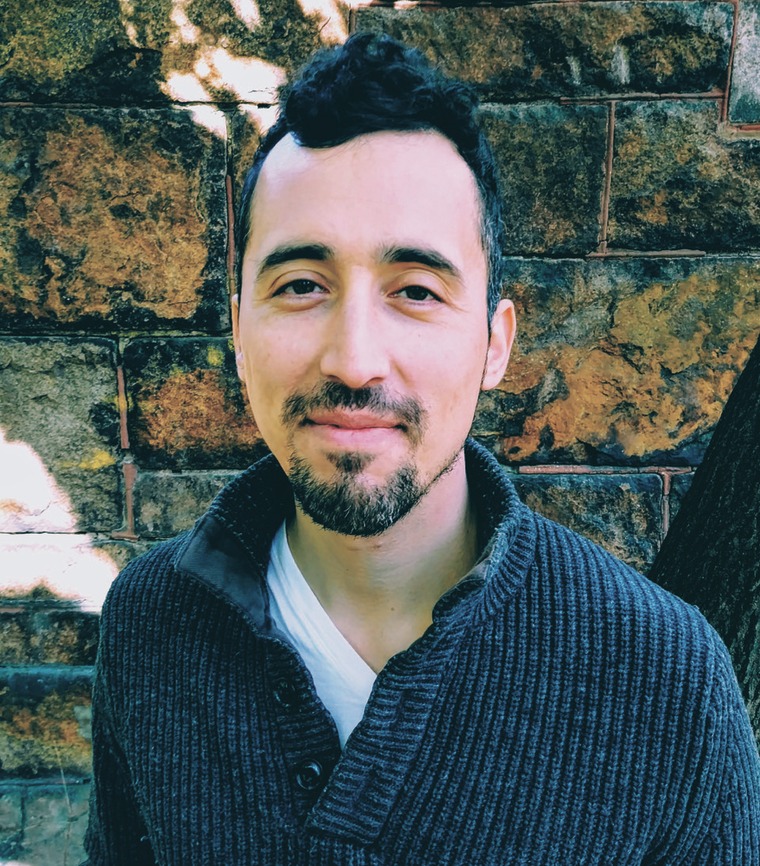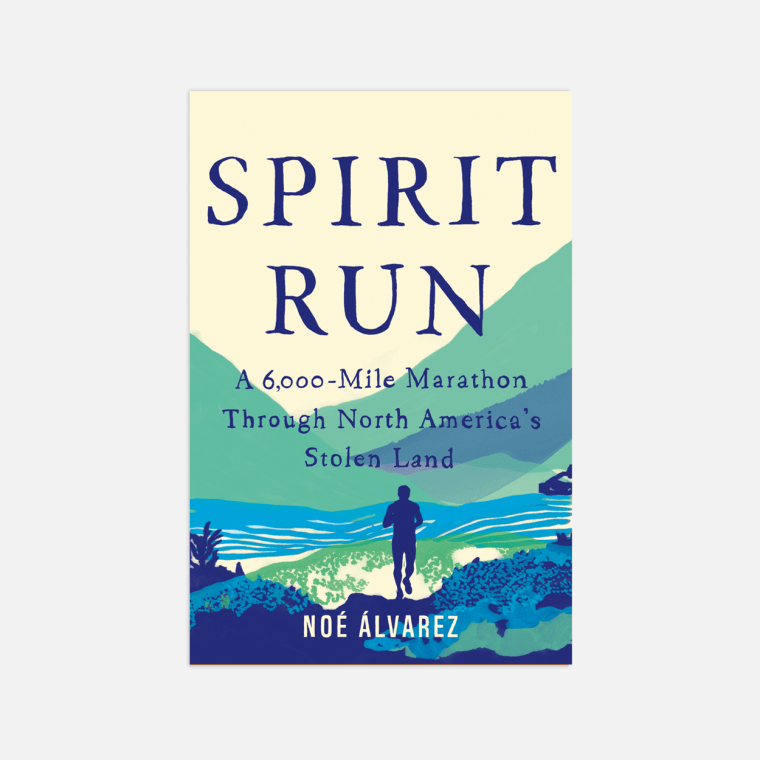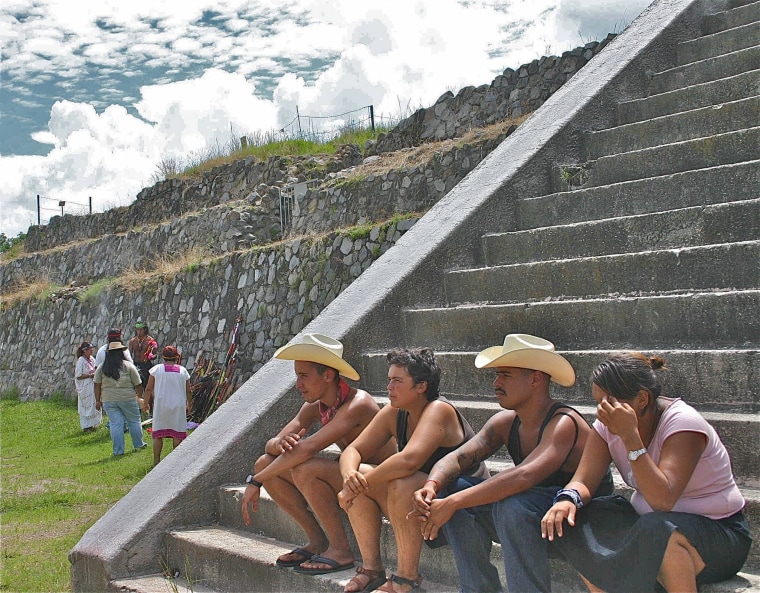Growing up in Yakima, Washington, Noé Álvarez witnessed the toll that agricultural work took on his immigrant parents. While they spent their lives working in the state’s apple industry, Álvarez dreamed of escaping what seemed like a pre-ordained future of manual labor.
“Never be like me. Like any of this. Get out when you can,” his father told him. “It’s either college or the fields.” When Álvarez won a full college scholarship, his new future seemed assured.
Except it wasn’t. As the first person in his family to attend college, Álvarez struggled with feelings of alienation and isolation. Before he finished his freshman year, he dropped out to join a group run that would take him – on foot – from Canada to Guatemala.
Álvarez’ experiences with the Peace and Dignity Journeys (PDJ) are chronicled in his debut book, “Spirit Run: A 6,000-Mile Marathon Through North America’s Stolen Land.”
The PDJ runs are noncompetitive races meant to renew participants’ connection to the land, to their roots and to indigenous communities. The runners travel in teams, sometimes running in groups and sometimes in relays.
Álvarez, 34, ran with PDJ in 2004 and said that it had taken him years to process what the journey meant to him.
“For me, running was never about mileage, image, calories or competition," Alvarez told NBC News. "It is about community. I was running because I wanted to heal, to expel this pain.”

While Álvarez describes his PDJ run as “a profound and spiritual experience,” his book details the grueling routine involved. The group ran rain or shine, covering 10 to 30 miles a day. They ran through beautiful forests, lonely deserts and crowded city streets. They generally had little contact with the outside world, and ran with limited direction; the PDJ motto is “When in doubt, turn left.”
Along the way, the runners dealt with hunger, thirst, exhaustion, injuries and their own in-fighting. Once during a solo run, Álvarez came face-to-face with a mountain lion.
Of Mexican-American heritage, Álvarez writes: “On the run is where I need to be. Out there, fully immersed in a new kind of chaos, in the wild, alongside Native runners, and relearning to be myself. … I want to honor my parents’ journey to the United States by embarking on my own adventure, and run on my own terms.”

After his PDJ run, Álvarez resumed his education, graduating from Whitman College in Walla Walla, Washington, and then receiving a Master's in Fine Arts from Emerson College in Boston.
Ironically for an author, Álvarez long had a fear about language. “As a kid, speaking Spanish at school got me in trouble. Words were things to avoid. When I did language or writing projects, I was told I was not good.”

Despite this, he became a writer to reclaim his narrative. “Writing connected me to the kind of person I never got to be as a child.”
Álvarez’ book arrives on the market during a challenging time for the publishing industry in general, and for Latino writers in particular.
Publishing during coronavirus
“I would describe the mood of the industry as nervous,” said Jim Milliot, editorial director of Publishers Weekly. With bookstores and libraries across the country closed due to the coronavirus crisis, many author appearances, speaking engagements and readings have been canceled.
“There has been some uptick in sales of children’s books and books that people can use with home-schooling, but generally it is not a pretty picture," Milliot said.
Because of the COVID19 outbreak, even well-known authors have difficulty getting coverage on television or radio. Publishers Weekly has been running an ongoing listing of canceled book festivals and events, a situation Milliot called unprecedented. “No one has ever gone through anything like this.”
The uncertainty facing the publishing industry is more acute for Latino writers, who often do not have the support of major publishing houses.
“The publishing industry is not shut down to the extent that the entertainment industry seems to be,” said editorial consultant Marcela Landres, “but these times are forcing writers to become more creative at marketing themselves and staying relevant.”
For example, one of her clients, Jamie Della, author of “The Book of Spells,” released a YouTube video about how to make hand sanitizer and boost your immunity.
Earlier this year, Oprah Winfrey chose the novel “American Dirt” by Jeanine Cummins for her book club. The book was criticized by Latino and other writers as perpetuating racial stereotypes, and that backlash led to a national discussion about cultural appropriation and diversity in the publishing world. In February, Oprah led a discussion on Apple TV Plus about the controversy surrounding the book, and some writers expressed optimism that the industry would become more inclusive of Latino voices.
That was before the coronavirus upended the entire economy. Still, Landres said that social media has given people of color an important means of expressing their views to a wide audience.
“I am optimistic, not so much by what is happening in the media industry, but by the energy of people of color coming up and around the industry," said Landres. "That is needed, because the world is much larger than the culture that rules book publishing.”
Landres chose not to watch Winfrey’s TV discussion about “American Dirt.” While Landres noted that Winfrey’s advocacy for the African American community is undisputed, in her view the former daytime talk show host has a learning curve when it comes to the Latino literary community.
“I say this with love and respect: Oprah is more qualified to be in the audience when there is a discussion about Latino books than she is to be leading a discussion about Latino books," Landres said.
For his part, “Spirit Run” author Álvarez hopes that his story about fellowship and reconnecting with nature will resonate with readers practicing social distancing.
“We are truly in a moment for reflection, of thinking about our place in humanity,” he said. “I hope that people will connect with their surroundings, and think about what should matter to us: the land, our youth, our culture.”
“Sometimes in our ventures as Latinos, or first-generation Americans, success can feel lonely,” Álvarez added. “I wanted to show how running can be a way of carrying our community forward.”
Follow NBC Latino on Facebook, Twitter and Instagram.


